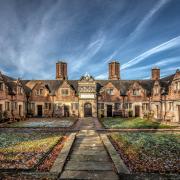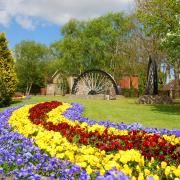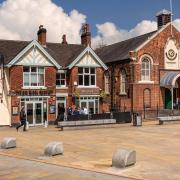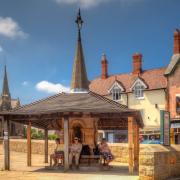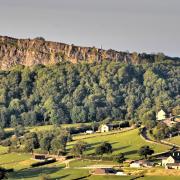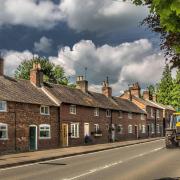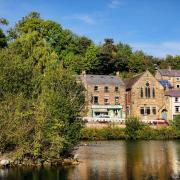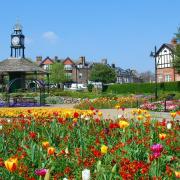In an era of advanced information technology relocating to the countryside can mean having the best of both worlds... Mike Smith investigates
The attractive Peak District village of Hathersage has long had a magnetic effect on the people of Sheffield, not only as a visitor destination in all seasons but also as a place to fulfil dreams of moving to a new home in the country. In this age of instant electronic communications, when the location of many businesses is a matter of choice rather than necessity, the village is exerting yet another pull. Some of Sheffield’s brightest entrepreneurs are being drawn to Hathersage as the perfect place in which to launch a new venture or relocate their existing company.
Ironically, it was the relocation of a factory, rather than a business using information technology, that set the trend for companies to find a home in Hathersage. Ever since he had seen small, well-designed factories in Switzerland, the celebrated Sheffield metalworker David Mellor had been keen to prove that good industrial architecture could enhance a rural setting rather than destroy it. When he came across Hathersage’s redundant gasworks, he saw a chance to put his theory into practice.
Mellor asked architect Michael Hopkins to design a cutlery factory on the circular base of the former gas-holder and convert the ancillary buildings into living accommodation, a design studio and offices. The result, completed in 1990, is a live-work complex which includes a factory with a ‘floating roof’ suspended above a round workshop. The building manages to be both high-tech and deferential to the landscape and the traditional buildings that surround it – just as Mellor had hoped.
The metalworker, known in the first instance for his elegant cutlery, had already realised another ambition by creating street furniture designed to improve the quality of the urban environment. Corin Mellor, who took over the running of the Hathersage complex on David Mellor’s death in 2009, has now created a novel tribute to his father’s work by installing examples of his street furniture alongside a new pedestrianized thoroughfare which runs from the visitor car park to the shop, design museum, café and factory. The complex is one of the Peak District’s major attractions, but this added feature is likely to pull in yet more visitors over the Christmas holiday period.
The new street, officially opened in September by Sir Michael Hopkins, includes street lighting columns inspired by columns Mellor had seen in the Borghese Gardens in Rome. These were designed in 1954 when he was still a student at the Royal College of Art. And his galvanised steel bus shelter, introduced in 1959, set a new standard for street furniture and still impresses with its elegant functionality – 140,000 were installed throughout the country.
The traffic lights that are still in use on our road network were designed by David Mellor almost half a century ago. Several working examples stand in the street alongside ‘top-hat’ litter bins, shapely black bollards and tubular steel outdoor seats: all testimony to David’s brilliance as a designer. In fact, his only design not to catch on was a rectangular pillar box, rejected by traditionalists, even though it halved collection times for postal workers gathering the mail that had been posted.
Ten years after the construction of the Round Building on the site of the old gasworks, work began on a new business and residential complex on a redundant plot next to the village’s rail station. One occupant of the Hathersage Business Park which has grown up on this site is Helen Ibbotson, who set up her own architectural practice six years ago after securing commissions to produce a masterplan for a holiday village in China and to design an upgrade for Sheffield Wednesday’s football stadium.
Her business started out as a one-person practice operating from the kitchen table of her home in Sheffield, but she now has a team of four working out of Brunel House in the Hathersage Business Park. Her Chinese portfolio has expanded so much that she has decided to learn Mandarin and the relocation of her business has helped her to work closely with the Peak District National Park Authority on architectural projects in Bramford, Taddington, Foolow and in Hathersage itself.
Helen continues to live with her husband and children in Sheffield, but she is delighted to work in Hathersage. She says ‘My team and I love being here. We often work in collaboration with other companies based in the business park, including shopfitters, ecology specialists and graphic and web designers. We have a fantastic view over the Peak District from the huge windows of our studio and our clients enjoy coming to meet us in this beautiful setting.’
Three years ago, yet another business park began to develop, not in a new build on a redundant site on the edge of the village, but in a group of agricultural buildings within Hathersage Hall Farm at the heart of the village. Recalling his aim in setting up Hathersage Hall Business Centre, Michael Shuttlewoth said, ‘My vision was to establish a community of quality knowledge-based businesses in a beautiful rural setting, but within easy reach of Sheffield. Apart from a few new additions, the businesses are housed in Grade II-listed buildings that have been carefully restored, insulated to the highest energy standards and equipped for good electronic communications.’
Michael had the misfortune to begin converting his vision into reality just three months before the recession set in, but his bold plan is already proving to be a success. Eleven of the fifteen units that were created have been let and a conference room is available for hire.
Ten years ago, Liam McNaughton set up a business which provides IT, hardware and software support for some of the UK’s most prestigious dental practices. Explaining why he moved Dental IT Ltd from the centre of Sheffield to Hathersage Hall Business Park eighteen months ago, he said: ‘Working in IT can be stressful, but the atmosphere here is very calm. The countryside is great, the roads are quickly cleared of any snow that falls in the winter months and the village has great shops. In fact, it was the availability of hot pork sandwiches with crackling that really won me over!’
Although Liam continues to live in a suburb of Sheffield, he has reduced his carbon footprint by exchanging a fraught daily journey to the city centre for a more leisurely trip to Hathersage, which he undertakes on his push bike from time to time. Peter Booth, managing director of CQM Training & Consultancy Ltd, has gone one better. His company, which supports process improvement and management development, particularly for the food industry, was set up in 1993. Three years ago, he moved his business from the city to Hathersage, which is the village where he lives.
As well as embedding staff in clients’ sites at various locations across the country, Peter has six employees working from his administration centre at Hathersage Hall Business Park, where all his training material is produced. He says: ‘We love working here. There is great countryside all around and our office is next to a trout stream and an orchard. In fact, the ambience is awesome.’
As his business has expanded, Peter has deliberately advertised locally for staff, and his employees and visiting clients make good use of the local shops, post office, pubs and food outlets. Like Michael Shuttleworth, he believes that the businesses that have been drawn to Hathersage are not only bringing new life to the village but are also helping to maintain its fine range of existing facilities. n
The David Mellor country shop, design museum and café are open from Monday to Saturday 9.30am to 6pm, Sunday 11am to 5pm. The cutlery factory can be visited from 10am to 5pm on Monday to Friday.










